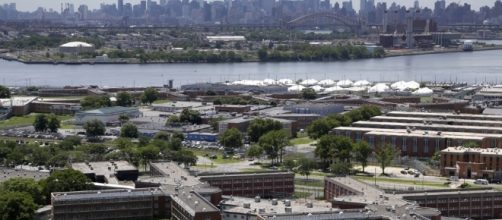New York City will close Rikers Island, according to reports. Mayor Bill de Blasio revealed this plan in a conference on Friday, although kept vague on how the changes will be employed beyond the construction of new facilities. The action is believed to be a reflection of growing advocacy against mass incarceration.
What do we know about the plans so far?
De Blasio explained in a statement that the Rikers Island jail facility will be closed and replaced with "a few new facilities" during a news conference at City Hall. According to reports, the process is expected to take years.
New York state Chief Judge Jonathan Lippman developed a report that recommended replacing the facility with five new jails spread across the city, in each of the city’s five boroughs, that had the expected cost of an estimated $10.6 billion.
Interestingly enough, De Blasio rejected plans to close Rikers Island as early as last year, due in part to costs and how it would affect taxpayers. At this point, De Blasio is not expected to adopt Lippman's report, once again due to similar concerns over the estimated cost. In a released statement, De Blasio said he is currently standing in a “neutral” position, and is only willing to acknowledge that there is a need for new facilities.
A tragedy may have instigated the change
According to reports, the number of people in custody, which currently stands at 9,500, needs to brought down to around half of its current size, or 5,000, before the jail can officially close. De Blasio has said that New York City will hope to accomplish this goal through the use of crime reduction, alternative sentencing, and bail reform.
Reportedly, activist groups within the New York City area advocated for Rikers Island to be closed out of criminal-justice reform. It is expected that a large influence in the decision to close down the jail for many was the death of Kalief Browder, a sixteen-year-old who had been kept in Rikers Island for three years without facing trial, due to being unable to afford bail, in addition to maintaining his innocence and refusing to accept a plea deal, after being accused of stealing a backpack.
Reportedly spending most of his time in solitary confinement, Browder's stay in the complex was believed to have had a negative effect on his mental health, leading him to commit suicide two years after his release. De Blasio confirmed that Browder’s death was a factor in the decision to close the complex, saying it was a reflection of the necessity to reform.

